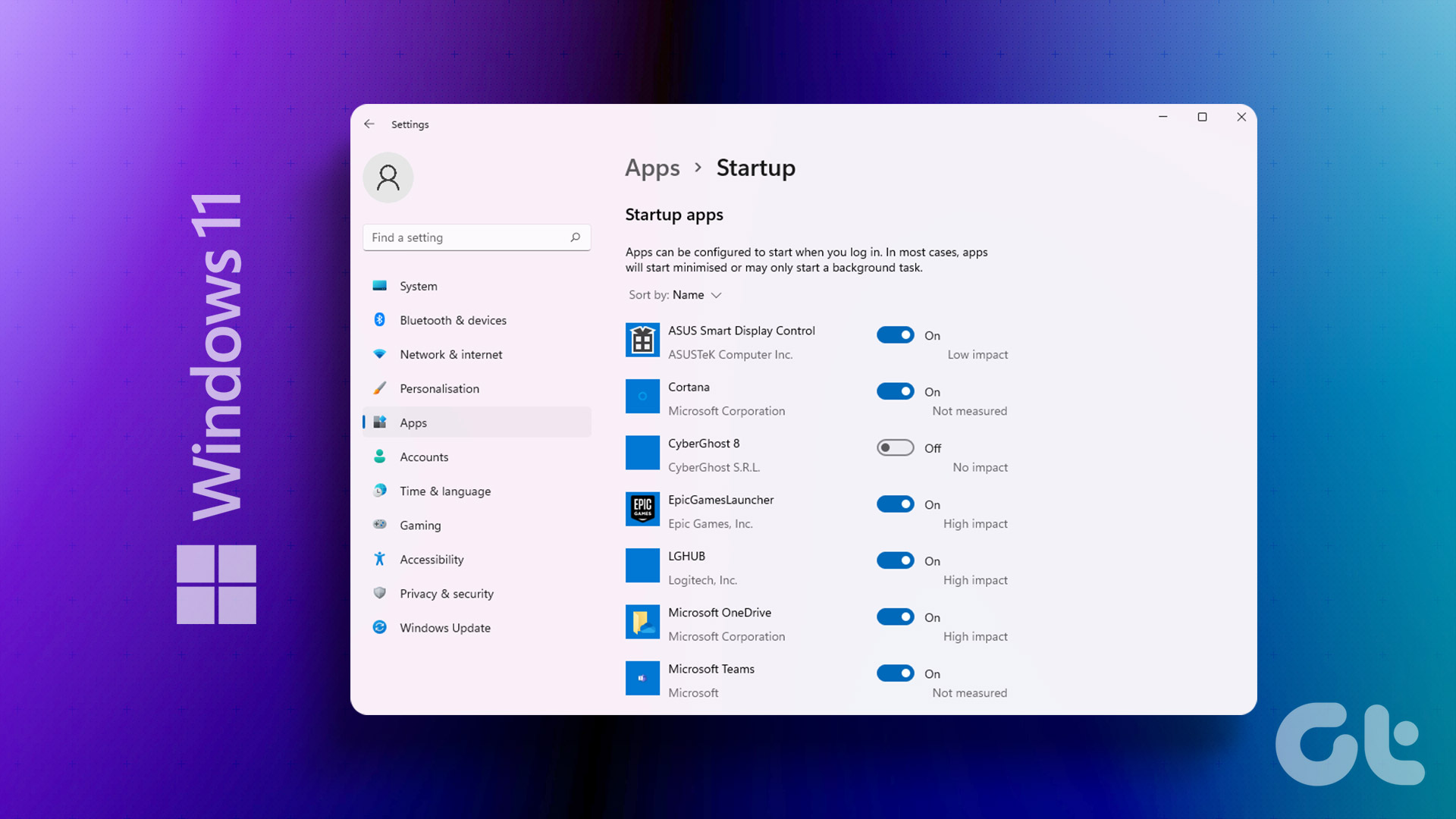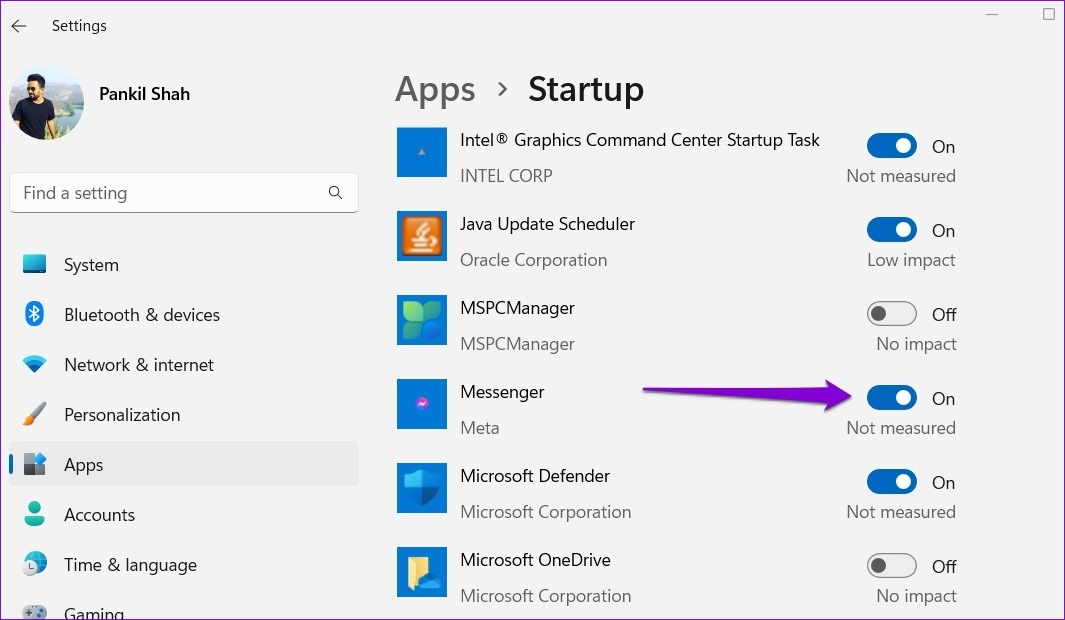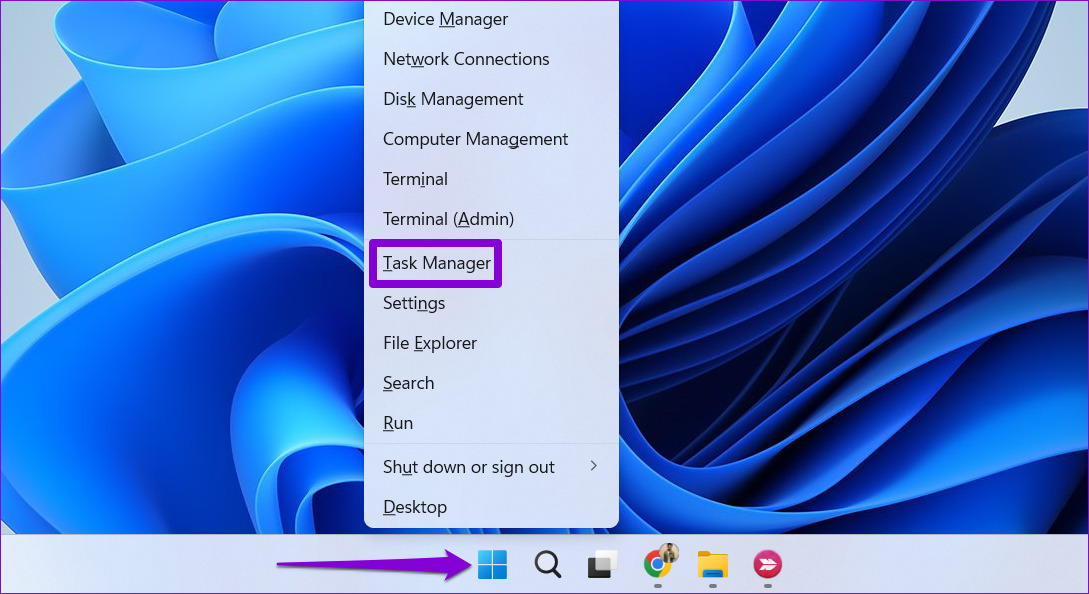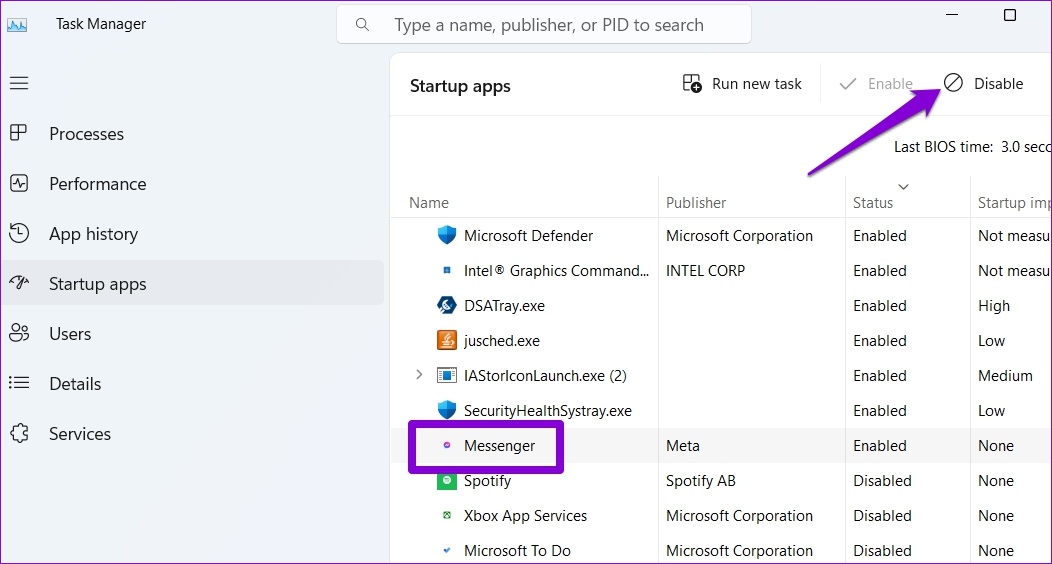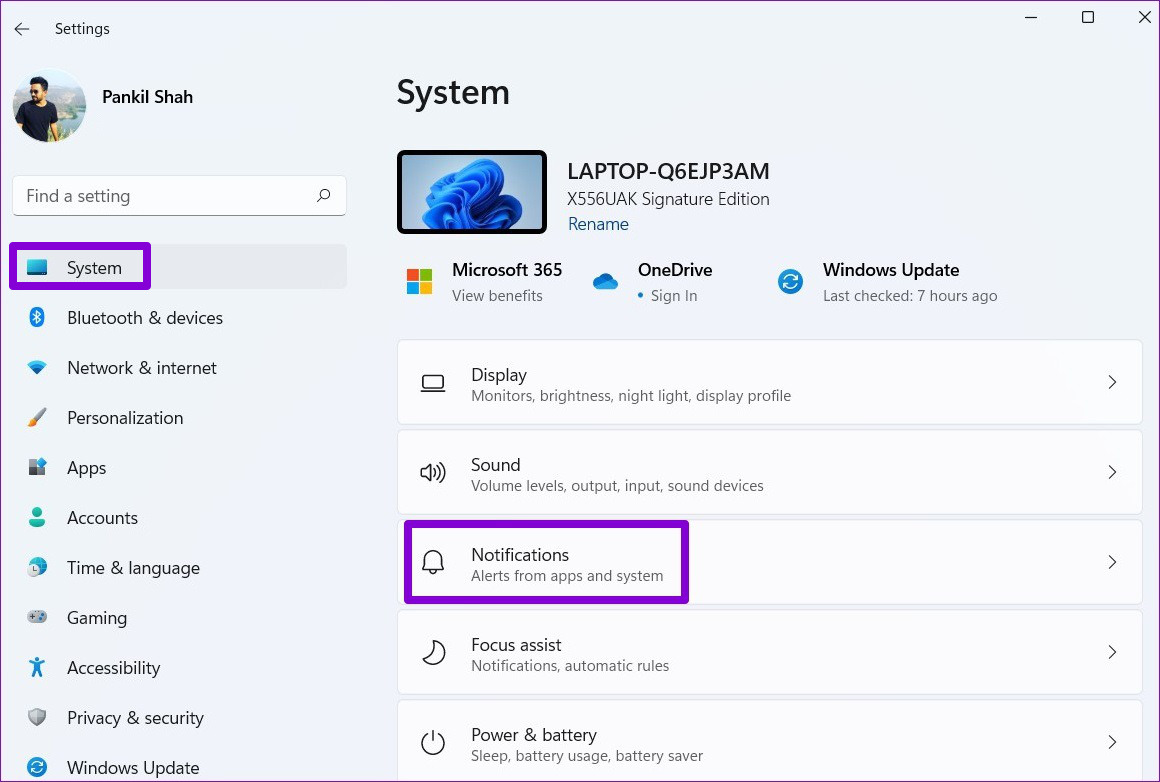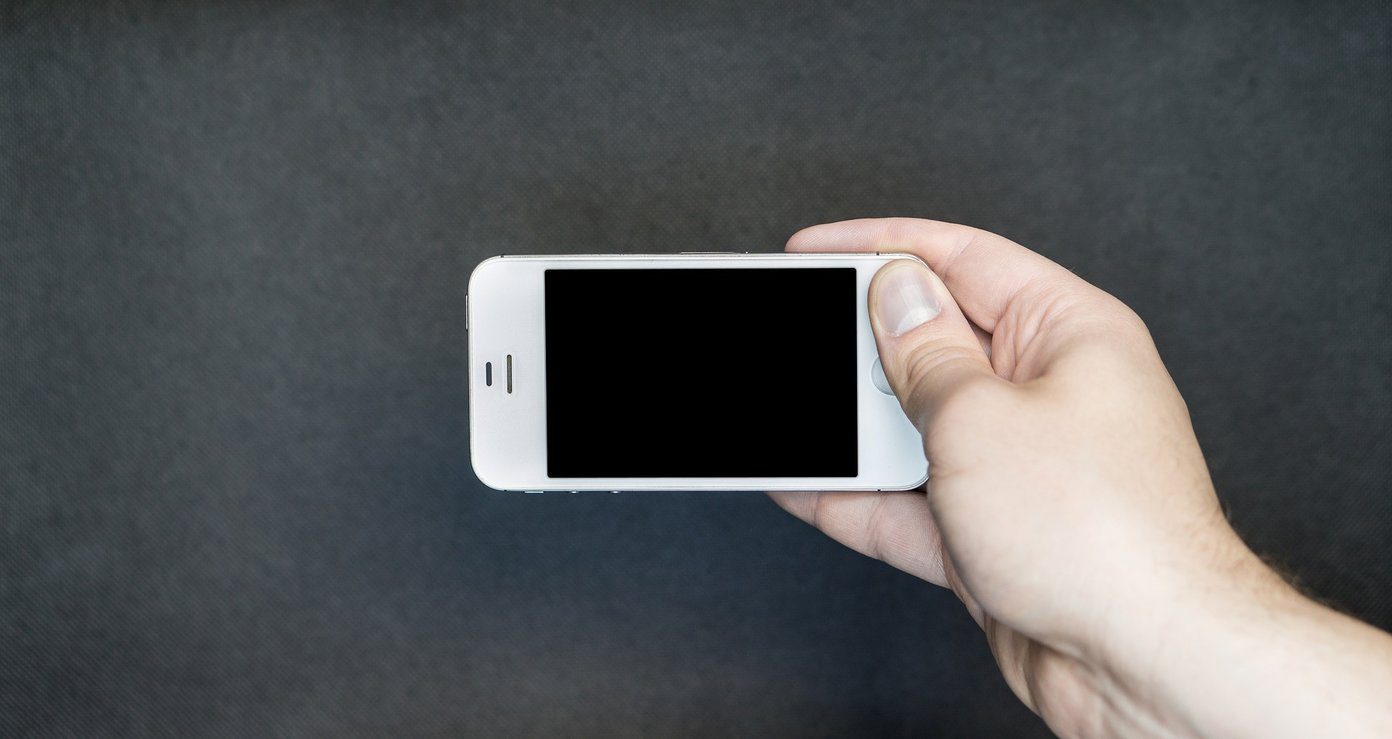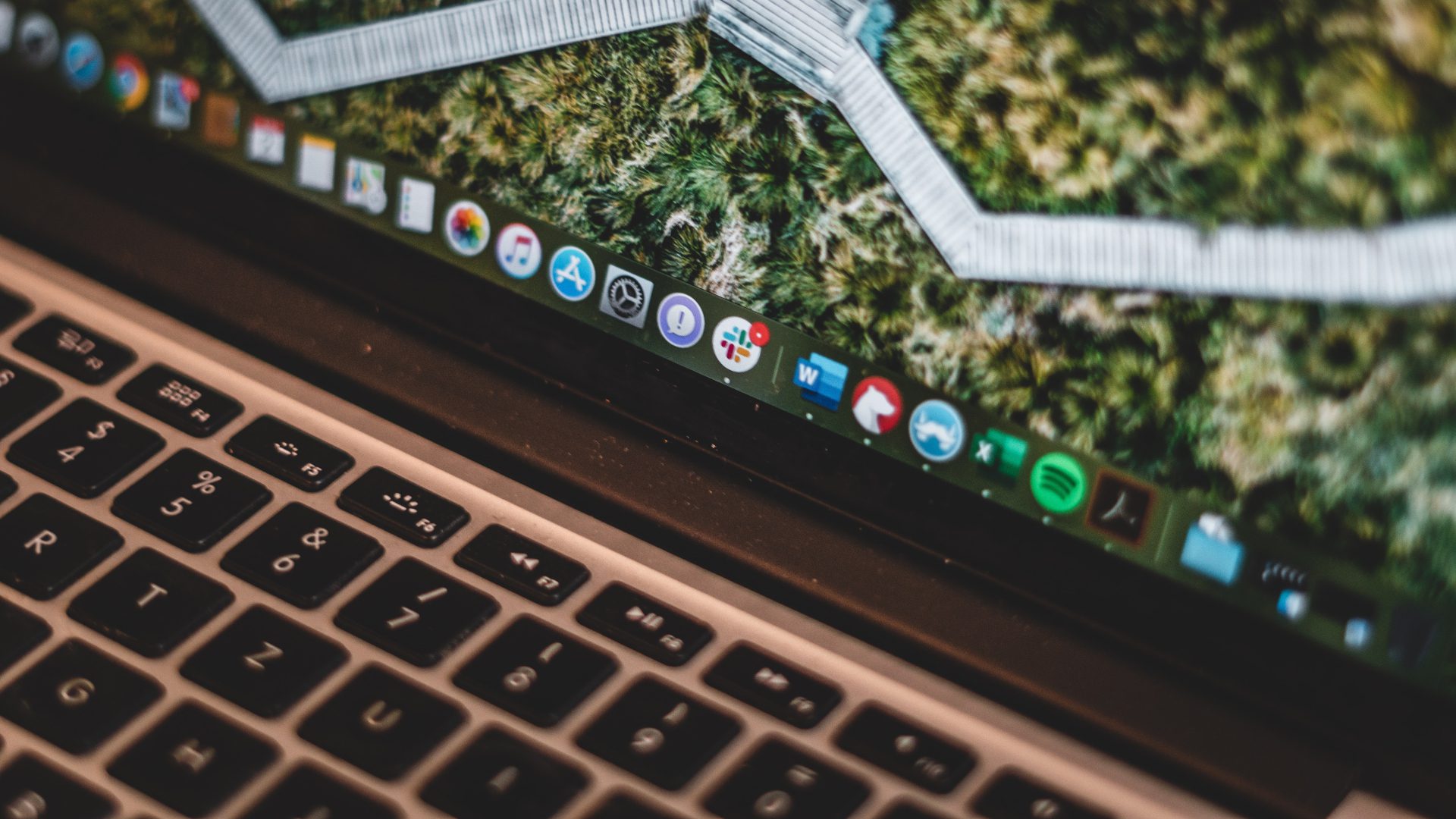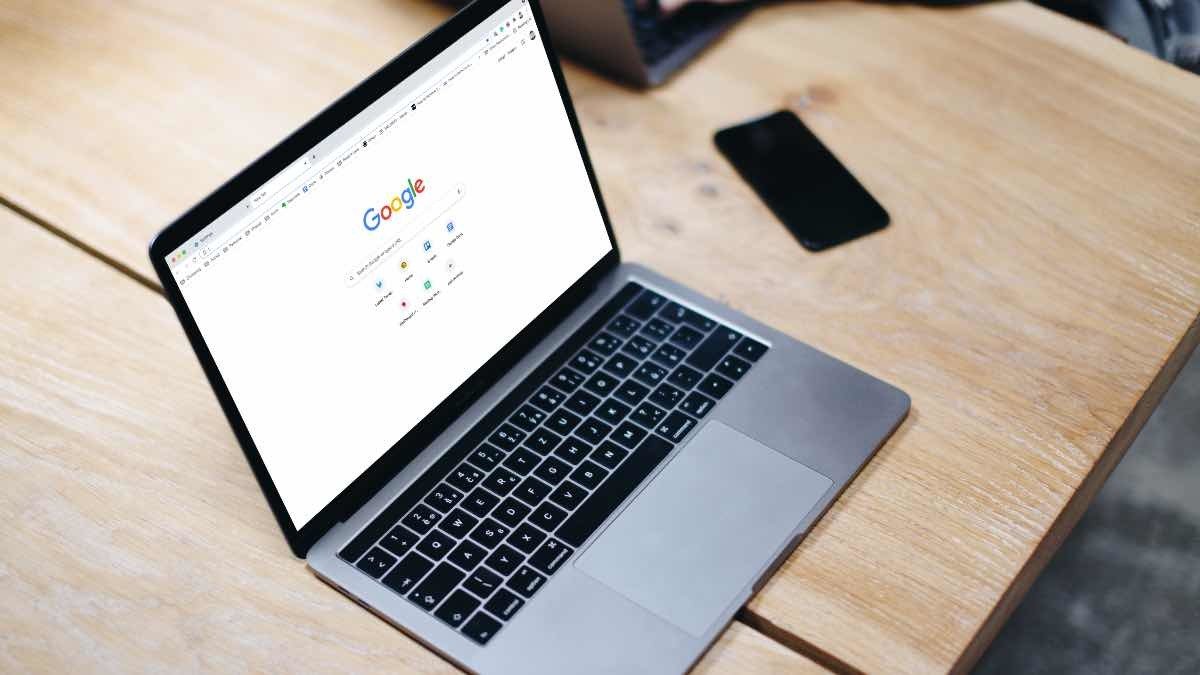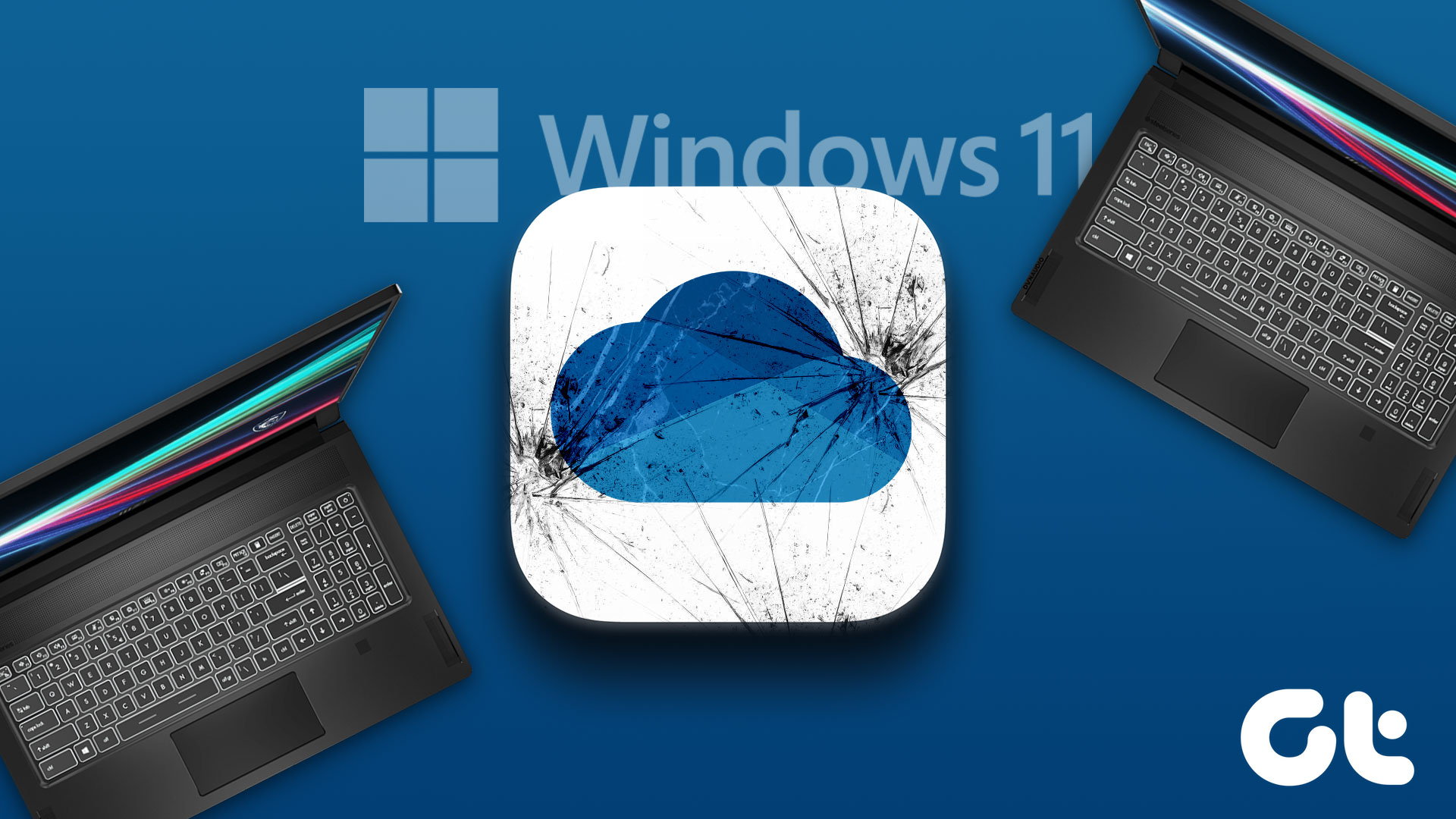Preventing unwanted apps from running on boot will not only improve your PC’s boot time but also reduce battery drain on Windows. This post will walk you through five easy ways to disable startup apps in Windows 11. So, without further ado, let’s get right to it.
1. Remove Startup Programs via Windows Settings
Probably the easiest way to disable or manage startup apps in Windows 11 is via the Settings app. Here are the steps for the same. Step 1: Open the Start menu and click the gear-shaped icon to launch the Settings app.
Step 2: Navigate to the Apps tab and click on Startup.
Step 3: Locate the app you want to stop from opening at startup and turn off the toggle next to it.
You can use the sort option to list apps based on their startup impact. Windows classifies startup impacts into three types—Low impact, Medium impact, and High impact. Identify the apps with higher impact and disable them to improve boot times on Windows 11.
2. Use Task Manager to Disable a Startup Program
Task Manager is a powerful tool for force-closing apps, configuring system services, and monitoring your PC’s performance. It also has a Startup apps section from where you can allow or disallow apps from opening at startup. Here’s how. Step 1: Right-click on the Start icon and select Task Manager from the list. Alternatively, press Ctrl + Shift + Esc to launch the Task Manager quickly.
Step 2: Switch to the Startup apps tab to view a list of apps along with their startup impact. Select the app you don’t want to run at startup and click the Disable button.
3. Stop Apps Using Startup Folder
The Startup folder in Windows can help you launch programs, run scripts, and even open your favorite websites on boot. Occasionally, applications will add their app shortcuts to the Startup folder to automatically launch themselves whenever your PC starts up. To disable such apps, you will need to access the Startup folder on Windows and delete unwanted app shortcuts from there. Here’s how. Step 1: Press the Windows key + R to launch the Run dialog box. Type shell:startup in the box and press Enter.
Step 2: Select the program shortcut you don’t need to run at startup and click the trash icon at the top to delete it.
4. Modify In-App Settings to Stop Applications From Opening
Some apps like Spotify, Telegram, Messenger, and more, let you modify their startup behavior directly from the in-app settings menu. You can dig through an app’s settings menu to locate its startup settings and disable it from there.
5. Remove Startup Apps From the Registry Editor
Another way to stop apps from opening at startup is by editing registry files. However, since registry files carry important files for Windows, you should only use this method if the above ones don’t work. Also, make sure you back up registry files before making any changes. Step 1: Press the Windows key + R to launch the Run dialog, type regedit, and press Enter.
Step 2: Use the address bar at the top to navigate to the following key.
Step 3: On your right, you’ll find entries for the apps configured to run at startup. Right-click on the app that you don’t wish to run and select Delete.
And that’s about it. The app should no longer launch at startup.
How to Enable Startup App Notifications on Windows 11
Windows 11 includes a startup app notification feature that sends you an alert every time an app or program is added to the startup list. This feature does not come pre-enabled in Windows 11. So, if you want to get notified every time a new app registers itself to run at startup, use these steps: Step 1: Press the Windows key + I to launch the Settings app. Step 2: In the System tab, click on Notifications.
Step 3: Scroll to the bottom and enable the toggle next to Startup App Notification.
Less Is More
Aside from the methods described above, there are also a few third-party apps that can help you stop apps from opening at startup in Windows 11. However, it’s best to stick to the native methods for as long as possible. The above article may contain affiliate links which help support Guiding Tech. However, it does not affect our editorial integrity. The content remains unbiased and authentic.
